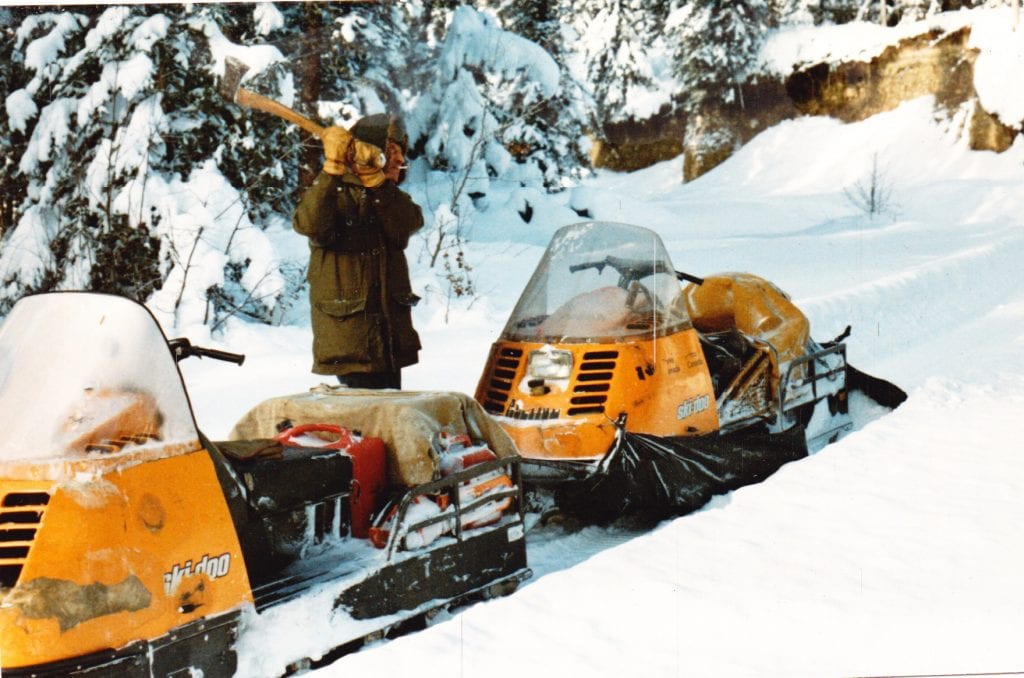
A difficult memorable event was the first avalanche rescue that I was on. I was only support staff but it were three young fellows on Mt. Edith Cavell that got buried in an avalanche and we lost them. It was also the very first avalanche that Alfie and Ginger were on – our first dog and dog-man (Alfie Burstrom was the first certified avalanche search dog handler for Parks Canada. Ginger was an exceptional search dog). It affected me for months afterward and I imagine I was having some PTSD because I went in the bush to the district by myself afterwards and I couldn’t sleep because I kept thinking about these guys. They were the same age as me – young and lots of life yet. I pondered for a long time why they would go into that kind of a situation. I still ponder it sometimes. That really got to me, but I guess being the first one. And then I attended there were many other accidents after that.
MD: How old would you have been at that point?
Al: 27. That was their age and they were into careers – it was just something for me to think about for a long time.
MD: How long did you go out in the bush for?
Al: Two weeks I was gone. And it was wintertime – it was on snowshoes and stuff, so lots of time to think out there.
One of the other memorable events was when I was appointed to Jasper Park’s first GT-3 Senior Warden -I felt that was an accomplishment and a memorable one.
MD: Can you tell me about any rescue /wildlife/ enforcement stories that stick in your memory?
There were quite a few. I always like to hang around with Wes Bradford because he was our Wildlife Conflict person and had some real adventures. We went through quite a few things together. He worked with me at Sunwapta too. They tried to make a mountaineer out of me, so Willi Pfisterer did a lot of training. I was on a lot of schools the first couple of years I was there. It was always good to go with Willi – he was so jovial. So I spent a lot of time climbing and on glaciers and gone to a lot of places that I wouldn’t have went if he hadn’t been there. I didn’t become a really good mountaineer, but I became a good support staff. I did enjoy it, and I pushed my body to the limit, but am not a totally strong traveller. They were always really good when you got back down to the bar though!
There were also two interesting poaching stories I was involved with. Murray Hindle and I on routine snow patrol came onto Indigenous folks from out near Edmonton at Beauty Creek Flats that had slaughtered eight cow elk, one moose near the Weeping Wall, and two coyotes in Banff park.
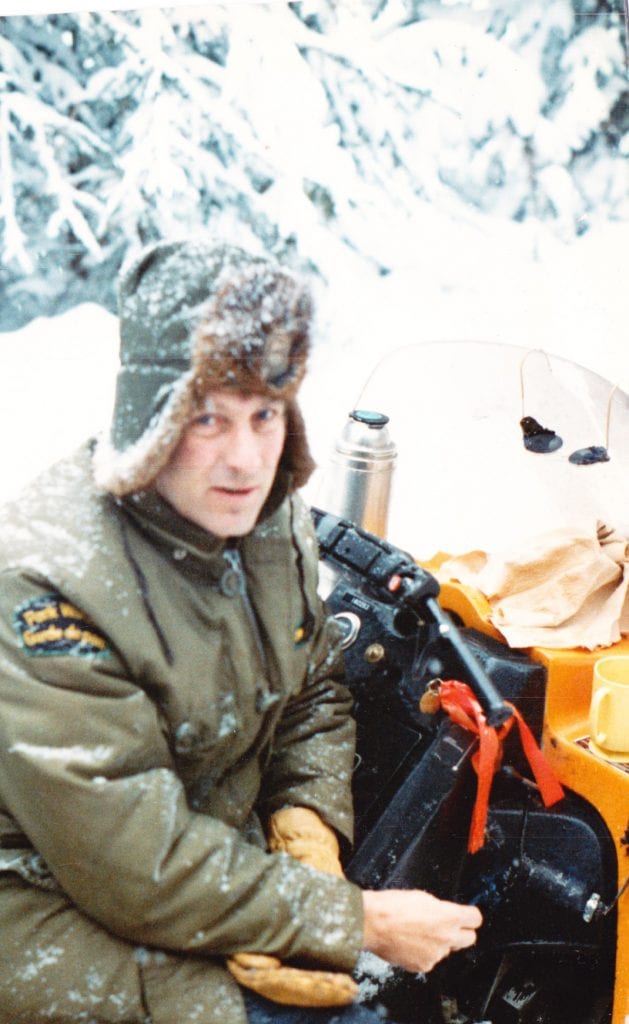
Then there’s the catch that we call “Erik‘s poaching” at home. My son Erik was just a baby and my wife was up with him in the middle of the night when he was not feeling well. She looked out the window of our house on Miette Avenue and saw a pick up truck on the wrong side of the boulevard shining a spotlight on the house numbers at five in the morning. We thought it was only the neighbours coming home after a party. About an hour later, dispatch called that a CN Rail employee on Highway 16 west of Jasper had seen two guys put a large bull elk in the back of what sounded like the same truck we’d seen up in front of our house. We made phone calls around town and came up with information on two guys in Valemount, BC. After a search around the kill area by some wardens, they found part of a truck canopy, tire tracks, and a gut pile was taken into evidence. Plaster casts of the tire treads at the site that matched ones taken on Miette Ave. Murray Hindle and Gord Antoniuk travelled to Valemount with the RCMP and BC Conservation officers, who found the elk hanging in their garage. And this was all case closed by noon! Rumours started that we were micro-chipping the elk!
MD: How did the Warden Service change over the years?
I had hired on in ‘69, just prior there had been an austerity year for the parks, so I guess that was for the warden service too, ‘cause I was supposed to get six months and only got 4 in the first summer there. Just after that was when the centralization began, and in Prnce Albert they actually closed down a bunch of the stations like Crean Lake, Kingsmere Lake, Boundary and a whole bunch of those places – I think they even took some of the stuff out of there, like the living quarters, around ‘70/’71. That’s my take on it anyway. Then Jasper tried not to really re-organize, but they did in a way. The backcountry stations were not manned year-round by wardens, but they did keep the districts and they developed an area system. So that’s what they did with their centralization and people did come in from out on the backcountry stations. Then in the early 70’s, the thing that did give a little blip in the warden service was that we re-classified, and we went from the Protective Custody classification to the General Technician. That put more emphasis on technical training, and was largely because a lot of us were coming from schools and universities. It was a transition from the old fellas that had either got hired on as cowboys or skiers. Then they started changing so they wanted a little more education, and they did put some of the older wardens in a bad spot, though they weren’t quite ready for retirement, but they couldn’t fall into that classification, because it was based somewhat on education. That had kind of an effect – there was kind of a blip in the warden service about ‘72/’73 where everybody was dissatisfied. And then the sidearm issue, and the public safety issue went on and on and on, and it got settled after I had left. It didn’t really seem to be done right and I think that’s when we lost our Warden Service. And it’s an ongoing thing – I think they’re struggling with it, because we did everything –the full range of duties in all functions, and you had that power and you were sworn in as a peace officer. And we handled it fairly well, I think over the years. I’m sure that we should have gone to the sidearms, but not so quick in getting people trained up, it could have happened over time. We had 24 permanent wardens and about 16 seasonal wardens each year, and those eyes and those abilities to handle those situations got cut down to six officers in Jasper. So I think something was done wrong, but I haven’t got the solution about how to do it right. It really split apart the warden service as I see it. The service lost a lot of enthusiasm with the members that are still there. Anyway, that was the downhill time. By our 100th birthday, in my books anyway, we had lost the warden service.
MD: Did you go to the celebration in Banff, the Centennial?
Al: Yes, it couldn’t have been better. I can put that in as one of the memorable events. Some of those guys I hadn’t seen for years.
Another thing that’s really helped the warden service out was when they opened up the Palisades school. We spent lots of time out there improving our resource management techniques and EMT. We brought people from all across Canada to the school here, and it really was a boost for me because I got to meet the guys from down east, the prairies, west coast and the Maritimes. We had the fellows from Quebec, and it was set up with three interpreters for the first few years because some of the (wardens from Quebec) came not knowing English– They could get enough to go by just like we can get enough French – it was really well done! But I was glad to see them and meet them. but it was really well set up – a wonderful facility.
MD: I think we’re down to number 11 now – What about the warden service was important to you?
Al: I went with the saying of “Protect the park from the people, and protect the people from the park”, which we always used, but what I believe in is conservation, so that to me says, “protecting and preventing” Parks to each and the other. I would just change it to that. Because I believe prevention is the way you stop things – or you mitigate it in some form to prevent harm to either party.
MD: Are there any legends or stories associated with the warden service that you can share? Is there anyone from the Service that stands out in your mind?
Al: It wasn’t just the warden service – it was Superintendents gone by which made our life a lot easier – Roy Flanagan was the one I’m thinking of. And Chief wardens like Ben Roper and Don Dumpleton did a pretty good turn while they were in there.
Don Dumpleton got the service together going and put a little glue in the outfit, because people got along and they partied together and made friends. It was a little bit old and bitter when I first came to both of those parks, P.A. and Jasper. The old fellas were very good to me – but they did a lot of bickering amongst themselves. They’d been in there a long time. Don liked to go out and have a good time and he never barred us from doing that – he developed our social club. That’s a thing that I was involved with, ‘cause I kind of started it and then the secretaries in the office ran it. It was a good thing ‘cause it handled all the Warden Days and this sort of thing for morale.
Al: I’m sure I’ve got things, but not all of them are for telling! I think we’re getting to lots of them in general.
Bob Haney was one of my favorite bosses – He’s topnotch as far as I’m concerned. I worked for him quite a bit. We’re friends with him and his wife Pat too.
MD: They used to call him “sensible Bob”.
AL: That was ‘cause he swung on the ceiling rafters – It’s how he got that name. All those guys were working on the Skoki Lodge. Don Mickle and Mrs. Mickle ran the (lodge and) horse thing up to Skoki – she was the one that managed the lodge and cooked up there. Anyway, they were having a party and the guys were getting kind of rowdy and Mrs. Mickle always thought Bob was the nicest guy, so good all the time. She was telling those other boys, “Slow down – why don’t you be sensible like Bob?” And here’s Bob behind her swinging on the ceiling rafters. There’s a legend!
MD: Is there anything about the warden service, as you knew it, that you would want future generations to know?
That’s a difficult one. I still believe that if the organization had stayed the way the Wardens went ahead for the 70s and 80s, that the changes needed for keeping up with technology and environmental concerns could have been made more gently. Rather than change over and “fix” everything, they could have made adjustments as needed.
It was about protecting the park from the people and the people from park. Being a warden was about educating and preventing harm – conservation for future generations.
MD What did you find was unique about the warden service?
Al: And then uniqueness. The uniqueness of the warden service to me is that in this wonderful country of Canada with its gems for Parks scattered across it and being the most beautiful areas and unique, there are only a few of us Canadians that were or are wardens, and we’ve had this chance to work our lives protecting and keeping them for the future folks. The uniformed force for the parks – we should really be thankful to have done this. I was always kind of amazed that I was at Maligne Lake.
I was amazed when I got in that jet boat and was roaring up and down the river that I had a piece of equipment like that to play with. I was always thrilled that we were set up so we could help visitors and Canadian people, we were the best equipped to do that. That’s why the parks and wardens were so special. I think when we work in them so long we don’t sometimes sit down and think about that. We are truly blessed to have had that opportunity. Being in a cubicle –I couldn’t do that. I never could –that’s why I retired, because it was getting so I wasn’t so useful outside, so they keep me in and I’m not an academic – making reports were not my piece of cake.
MD: Any lasting memories?
Al: The lasting memories – I did have a favourite horse in the Park – Bootlegger. He was a character and I had him with me from the time I started at Blue Creek, at Maligne, and at Sunwapta, until I was near the end, when I was in town.
MD: What made him your favourite horse?
Al: He was just a character – he was a paint, so he was always lucky to start with. Denny Welsh’s little girl, Ellie, wanted to go see the bootlegger and some older woman was wondering what was going on with that little kid! He was her favourite horse too when she was a little tiny girl. Dennis was our barn boss for all the time I was there, more than 25 years. He just passed away last summer – he was a favourite of everybody there. I kind of missed that, the people that you work with, he was one of our better ones for the warden service. He was good – he really put out a good, reliable horse for you to use in the backcountry. Horses really liked him. Another faithful backcountry companion from the beginning was my german shepherd/siberian-X, Kalay. I was a bit lost without him after he died, as he would warn me of bears and other things along the trail, but we were already living in town by then.
One more thing – I think my favourite place in the whole park is Topaz Cabin, and it’s halfway up the Upper Blue Creek Valley on the North Boundary. It’s a little tiny cabin but just such nice country and good fishing – you can see up the valley both ways and its near the Natural Arch and Topaz Lake. The Upper Blue Creek valley – there’s not many places that can beat that as far as I’m concerned – really good memories.
MD: Do you ever miss being a warden?
Al: I really don’t miss the Service – the day to day work, except for missing the people and I can still get in touch with them. The only thing I think about is the shape I’m in now, and it would have been nice to go on the north boundary on one last horse trip, but I can’t do that, but I can remember so…I’m glad that I got out of the service earlier too, because I don’t think I could have handled another 5 years sitting there waiting for the pension.
MD: How old were you when you retired?
Al: 50. I believe that I had the best times. You can talk to all the fellas in my age group and the ‘70s and ‘80s were about the best time I think there was with the warden service. We were going ahead and we were really doing a job of it. We were doing the science and still doing the traditional stuff too. In the ‘90s it started to peter away, and then of course it went in the early 2000s and all the issues that followed. We all thought that we got the best of it.
MD: Do you have any old photos?
Al: I’ll have to look around, because I do have some that I wouldn’t mind submitting to you. They had a photographer follow us around for a whole summer and he put binders and binders of pictures together. He was always with us wherever we were doing anything. I’m in a lot of them, so I was wondering if – I’ll get a hold of Mike Eder who looks after that in Jasper, and I’ll maybe see if I can get some of the pictures from there, because it’s of me doing different things. Well, they’ve got that there, so….it’s all pictures of warden work in Jasper that he took pictures of them doing whatever they were doing. I’ll get in touch with him again to see if I can get that, or to get what pictures out of it that I would like. Nina and I did take pictures for a number of years but they’re stashed away and we haven’t had a chance to go through them. We just moved here in the last year too, but we’re still kind of moving, we’ve still got stuff at our farm.
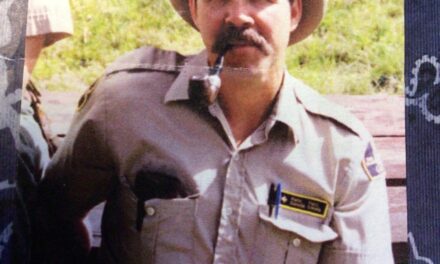
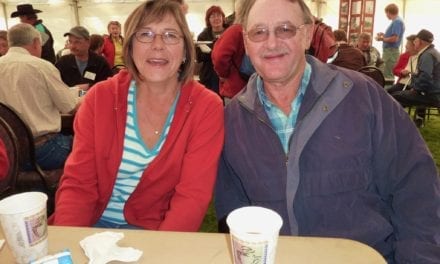
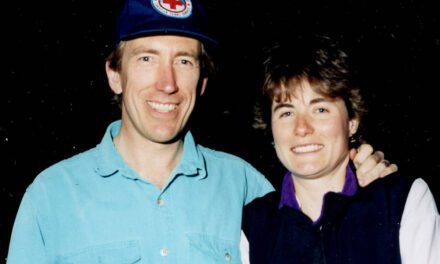
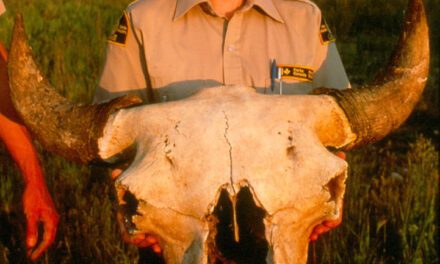
I worked with the warden service in Jasper national park the summers of 54 to 56 the best times of my life helped to build the wardens house
And the lookout tower these are the most memorable years of my life
Nearly 90 now and still would like to spend time there
Dave l